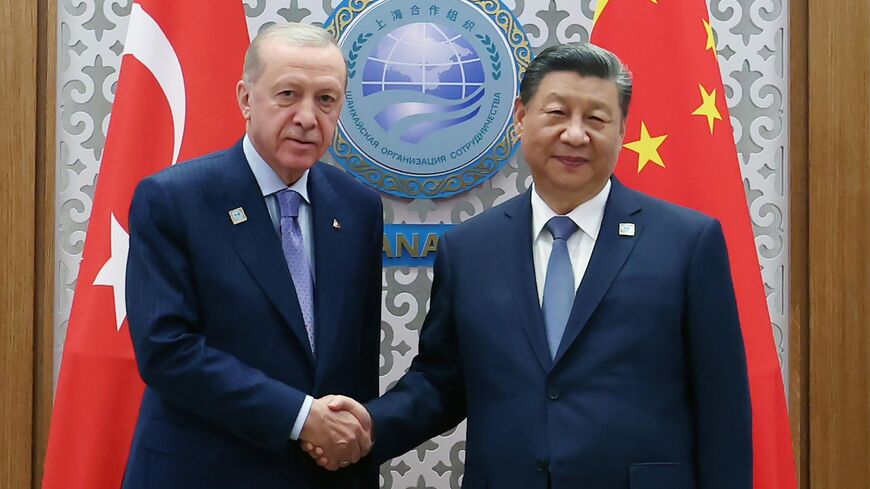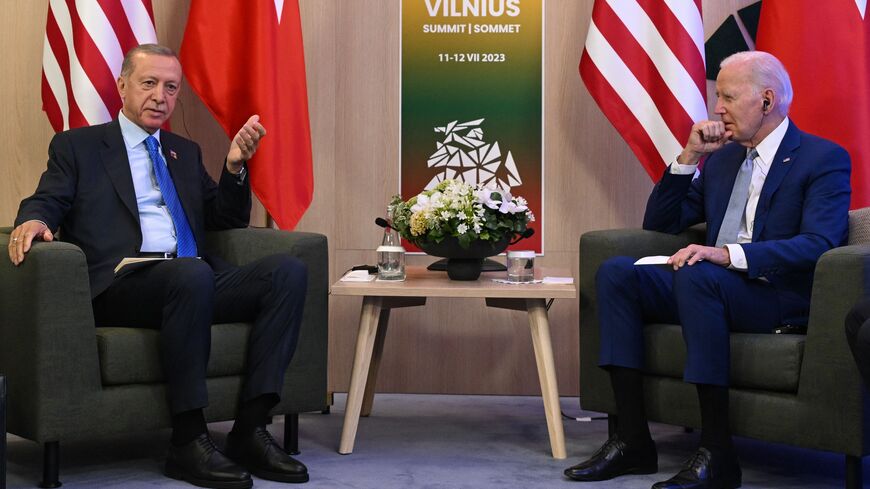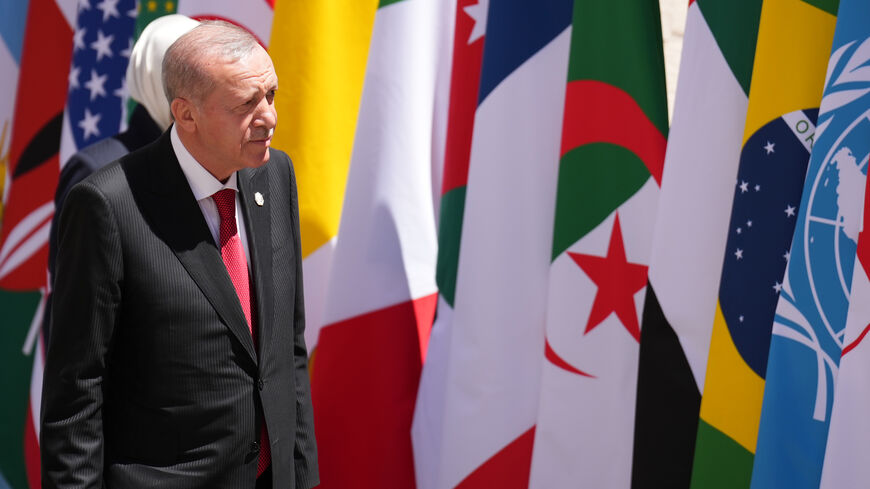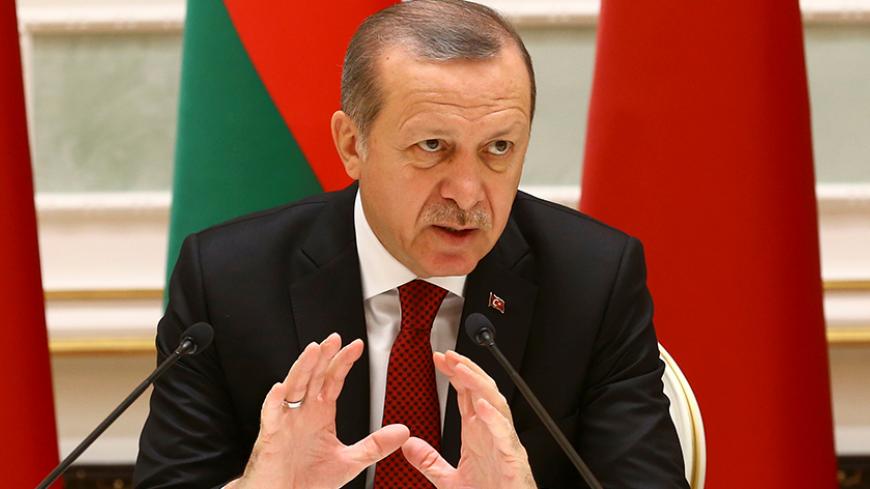Turkey’s Erdogan arrives in US for NATO summit: Defense sales, PKK ties in focus
The Turkish president said cooperation against terrorism and removing defense sale obstacles against his country will top his agenda during his trip.
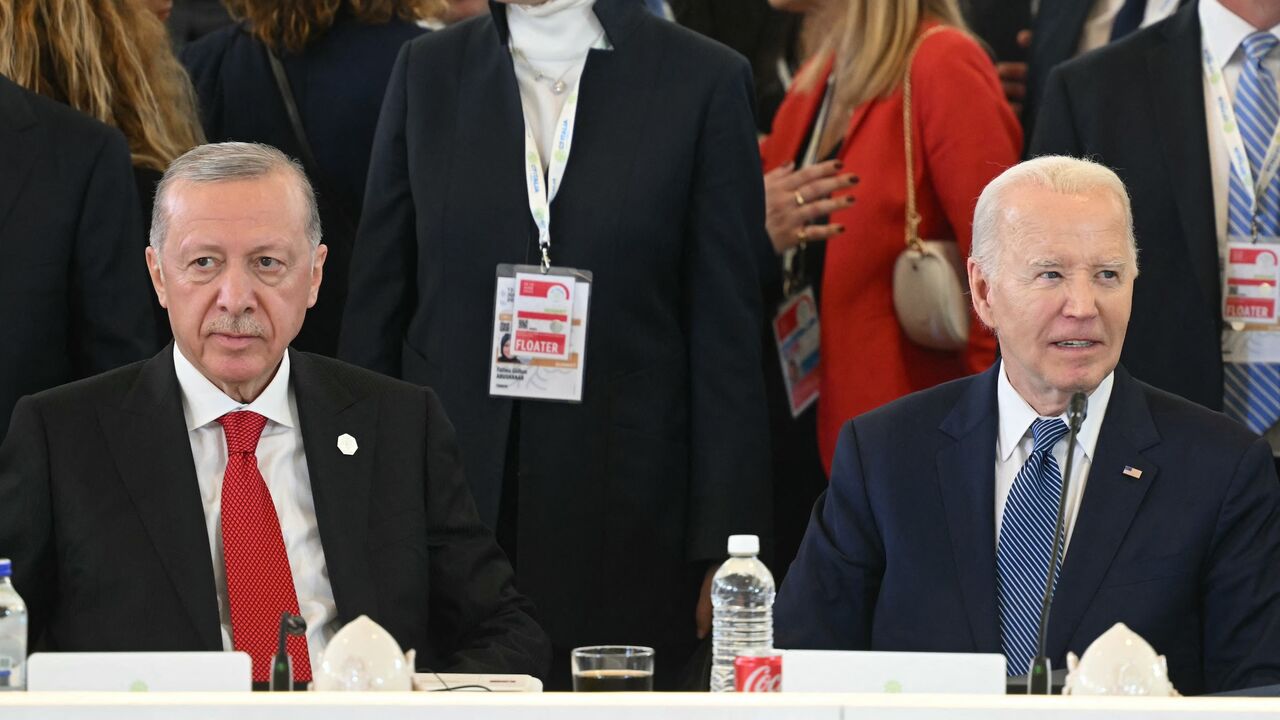
ANKARA — Turkish President Recep Tayyip Erdogan arrived in Washington on Tuesday to attend the NATO’s three-day summit, where Ankara is expected to make its case for boosting defense sales and increasing pressure on Kurdish groups it classifies as terrorist organizations.
“We will also stress the need for increased NATO efforts for a decisive and comprehensive fight against terrorist organizations,” Erdogan told reporters ahead of his departure from Ankara earlier Tuesday. He added that he will also push for removal of “obstacles” to defense sales that some NATO countries are putting before his country. These two issues remain the major grievances Ankara has with some NATO capitals, particularly Washington.
Speaking in Washington on Monday, Numan Kurtulmus, the speaker of the Turkish parliament who was elected from Erdogan’s ruling Justice and Development Party, was more direct. “Our expulsion from the F-35s [fighter jets consortium] is an extremely serious double standard,” Kurtulmus, who traveled there to also attend the NATO’s parliament speakers meeting, told Turkish journalists on the sidelines of the meeting.
Turkey was ousted from the F-35 fighter jet program in 2019 over its purchase of Russian-made S-400s under the Countering America's Adversaries Through Sanctions Act (CAATSA). Kurtulmus argued that the CAATSA was used as a “political tool” against Turkey. The US Congress passed the bill in 2017 to deter significant transactions with Russia.
Erdogan’s visit to Washington comes amid growing prospects for the resumption of high-level dialogue between Turkey and Syria. Having failed to convince Washington to abandon its partnership with the Kurdish-led Syrian Democratic Forces, which Turkey deems a top national security threat, Ankara is seeking Syrian President Bashar al-Assad’s cooperation against the group. Turkey equates the Kurdish-led SDF with the outlawed Kurdistan Workers Party, which has been waging an armed campaign for Kurdish self-rule inside Turkey since 1984. While the United States and the European Union designate the PKK a terrorist organization, the SDF remains a major ally of the US-led international coalition against the Islamic State in parts of northern and eastern Syria.
Turkish Foreign Minister Hakan Fidan named three NATO countries that were still actively supporting the SDF. “To be frank, there are two and a half NATO member countries with which we have problems on the issue of the YPG: the United States, United Kingdom and a little bit France,” Fidan said last month, using acronym for the People's Defense Units, the backbone of the SDF. In addition to Fidan, Turkish Defense Minister Yasar Guler is also accompanying Erdogan during the Washington visit.
It is unclear if the Turkish president will hold a bilateral meeting with his US counterpart, Joe Biden. Erdogan’s visit to Washington is the first since Biden became president in 2020. An official trip last May was postponed amid US-Turkey differences over the Gaza war. Both the Turkish and the US sides cited a scheduling conflict as the reason for the delay, but Turkish media outlets close to the government reported that the United States' continuing military support for Israel was one of the leading factors in the Turkish side's decision to postpone.
“We will raise the ongoing massacres against the Palestinian people in Gaza,” Erdogan told reporters earlier Tuesday. While the United States and European Union consider Hamas a terrorist organization, Turkey does not. Erdogan, an outspoken critic of Israel, branded the militant group as freedom fighters. US Ambassador to Ankara Jeff Flake said last month that the two leaders might meet on the sidelines of the summit.
The Turkish president’s attendance at the NATO summit also comes at a time when Turkey has become more vocal about its desire to deepen its ties with China-led international platforms that are seen as rivals to NATO and European Union.
Speaking last week on his return from the China-led Shanghai Cooperation Organization (SCO) bloc’s summit in Kazakhstan, Erdogan reiterated his desire to become a full member of the bloc. Founded by China, Russia, Kyrgyzstan, Tajikistan, Kazakhstan, Uzbekistan, India and Pakistan in 2001, the bloc identifies combating terrorism and radicalism as one of its goals.

